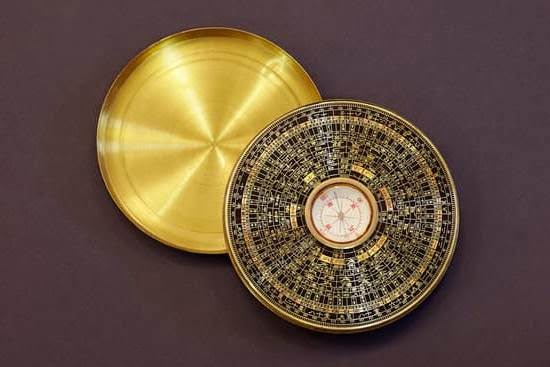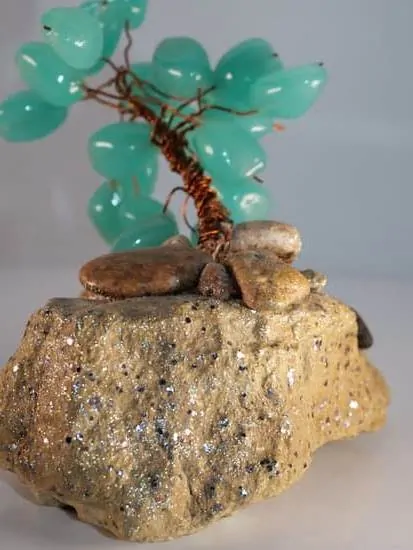When it comes to creating a harmonious and balanced environment in your home, Feng Shui is a practice that can guide you in achieving just that. One essential aspect of Feng Shui is the placement of stairs within your house, as they play a crucial role in the flow of energy. The question of where to put stairs in a house according to Feng Shui principles is vital for promoting positive energy and preventing blockages.
In Feng Shui philosophy, the energy flow, or Chi, within a space greatly influences the overall well-being of its occupants. Therefore, understanding how to maintain this flow and ensuring that the placement of stairs enhances rather than disrupts it is key. By carefully considering factors such as location, direction, and design when placing stairs in your home, you can create a more balanced and harmonious living environment.
Proper stair placement not only contributes to good energy flow but also brings various benefits to the inhabitants of the house. From improving health and relationships to increasing prosperity and success, aligning staircase placement with Feng Shui principles can enhance every aspect of your life. By avoiding common mistakes and following guidelines for optimal stair placement, you can harness the positive energy and experience its transformative effects firsthand.
Understanding the Energy Flow in the Home According to Feng Shui Principles
Feng Shui is an ancient Chinese practice that focuses on harmonizing individuals with their surrounding environment. One important aspect of Feng Shui is the understanding of energy flow, or Qi, within a space.
In the context of a home, the location and layout of stairs play a critical role in the flow of energy throughout the house. By properly placing stairs in a home according to Feng Shui principles, you can optimize the movement of Qi and create a more harmonious living environment.
Importance of Energy Flow in Feng Shui
According to Feng Shui beliefs, energy, or Qi, flows through a space in a specific manner. The way energy moves within a home can influence various aspects of an individual’s life, including health, relationships, and overall well-being.
Stairs are considered pathways for energy to move from one level to another in a house. Therefore, it is crucial to ensure that the placement of stairs does not disrupt the natural flow of Qi but rather allows it to circulate freely and harmoniously.
Impact on Home Design
The proper placement of stairs in a house can have a significant impact on both the design and functionality of the space. Stairs that are strategically located based on Feng Shui principles can not only enhance the aesthetic appeal of your home but also contribute to a sense of balance and tranquility.
By considering factors such as directionality, material choice, and shape when deciding where to put stairs in a house according to Feng Shui guidelines, you can create an environment that promotes positive energy and overall well-being for its occupants.
Factors to Consider When Deciding Where to Place Stairs in Your Home
When it comes to determining where to put stairs in a house according to Feng Shui principles, there are several important factors that should be taken into consideration. One key factor is the flow of energy, also known as chi, throughout the home. Staircases play a crucial role in either enhancing or disrupting this energy flow, so their placement is vital for maintaining harmonious energy in the space.
Location and Direction
The location and direction of the stairs in your home can greatly impact the flow of energy. According to Feng Shui experts, it is best to have stairs located in areas where they do not block the main entrance or obstruct pathways within the home. Additionally, stairs that lead straight to a door or window can cause chi to rush out of the house too quickly, leading to loss of energy and potentially negative consequences for the occupants.
Size and Shape
The size and shape of the staircase are also important considerations when placing stairs in your home according to Feng Shui principles. A staircase that is too narrow or steep can create a feeling of constriction and discomfort, while a staircase that is too wide or grandiose may overpower the space and disrupt the natural flow of energy. It is recommended to have stairs with balanced proportions that fit seamlessly within the overall design and layout of the home.
Materials and Colors
In addition to location and size, the materials and colors used for your staircase can also influence its Feng Shui placement. Opt for high-quality materials such as wood or metal for your stairs, as they are believed to promote positive energy flow.
Colors can also play a significant role in determining the energy of a space – choose colors that complement the overall color scheme of your home while promoting harmony and balance. By carefully considering these factors, you can ensure that your staircase placement aligns with Feng Shui principles and enhances positive energy throughout your home.
Benefits of Proper Stair Placement in Feng Shui
Feng Shui emphasizes the importance of proper stair placement in a home to ensure the harmonious flow of energy. When considering where to put stairs in a house, Feng Shui principles suggest that staircases should not face the front door directly, as this can lead to energy rushing up and out of the house too quickly. Instead, stairs should be positioned in a way that gently guides energy throughout the home, promoting balance and well-being.
One key factor to consider when deciding where to place stairs in your home is to avoid locating them directly in front of main entryways or doors. This can create a disruptive flow of energy, known as “Sha Chi” in Feng Shui, which can negatively impact the inhabitants of the house. Additionally, staircases that are positioned too close to doors can impede the flow of positive energy throughout the space, leading to stagnation and blockages.
Proper stair placement according to Feng Shui principles not only enhances the energetic balance of a home but also brings about various benefits for its inhabitants. By placing stairs thoughtfully and strategically, you can promote clarity of mind, vitality, and harmony within your living space. Whether you are renovating an existing home or designing a new one, incorporating Feng Shui guidelines for stair placement can greatly contribute to creating a supportive environment for overall well-being.
| Factors Considered | Impact on Energy Flow |
|---|---|
| Avoiding direct alignment with main entryways | Prevents energy from rushing out too quickly |
| Maintaining proper distance from doors | Ensures smooth flow of positive energy throughout the space |
| Strategic positioning for balance and harmony | Promotes clarity of mind and vitality within the home |
Common Mistakes to Avoid When Placing Stairs in Your Home
When it comes to implementing Feng Shui principles in your home, the proper placement of stairs plays a crucial role in maintaining positive energy flow. However, there are common mistakes that many people make when deciding where to put stairs in a house. By being aware of these missteps, you can ensure that your staircase contributes to a harmonious environment.
To help you avoid these common pitfalls, here are some key mistakes to steer clear of when placing stairs in your home:
- Placing the staircase directly facing the front door: This is considered bad Feng Shui as it allows the positive energy entering the house to flow out too quickly. To remedy this, consider adding a screen or partition to block direct sightlines from the front door to the stairs.
- Positioning the staircase near the kitchen or bathroom: Stairs located near these areas can disrupt the flow of Chi (energy) as they are associated with water elements. It is advisable to keep staircases away from these rooms to maintain a more balanced energy flow.
- Building spiral staircases or excessively narrow stairs: While spiral staircases may look visually appealing, they can create a whirlwind effect that disturbs the energy flow in the home. Additionally, narrow stairs can cause discomfort and hinder smooth movement up and down the levels.
By avoiding these common mistakes when considering where to put stairs in a house Feng Shui, you can create a more supportive and harmonious living environment. Paying attention to these details will not only enhance the aesthetic appeal of your home but also contribute positively to your overall well-being and happiness.
How to Determine the Best Location for Stairs in Your House
Feng Shui practitioners believe that the proper placement of stairs in a house is crucial for maintaining positive energy flow and promoting harmony within the home. When considering where to put stairs in a house for Feng Shui purposes, there are several factors to take into account.
One key consideration is the direction in which the stairs face, as this can impact the flow of energy throughout the space. Ideally, stairs should not directly face the front door or be located directly opposite it, as this can lead to good energy being drained away from the house.
Another important factor to consider when determining where to place stairs in your home according to Feng Shui principles is their position in relation to the main living areas. Stairs that are located too close to the main entrance or directly facing the kitchen or bedroom can disrupt the flow of energy and create challenges in maintaining a harmonious atmosphere.
It is recommended to position stairs off to the side of these areas or create a partition to separate them visually.
Additionally, considering the layout and size of your home is essential when deciding on the best location for stairs based on Feng Shui principles. Avoid placing stairs in cramped or narrow spaces, as this can lead to feelings of discomfort and claustrophobia. Instead, opt for open staircases with ample natural light and ventilation to promote a sense of spaciousness and well-being throughout the home.
| Factors for Determining Stair Location | Implications |
|---|---|
| Direction Stairs Face | Affects energy flow |
| Position in Relation to Main Living Areas | Effects on harmony and balance |
| Layout and Size of Home | Influence on comfort and well-being |
Staircase Design Ideas to Enhance Feng Shui in Your Home
When it comes to enhancing the flow of energy in your home and implementing Feng Shui principles, the design of your staircase plays a crucial role. The placement and design of stairs can either promote positive energy or hinder it, so it is essential to carefully consider these aspects when designing or renovating your home. Here are some staircase design ideas to help enhance Feng Shui in your living space:
- Curved Staircases: Curved staircases are believed to be more auspicious in Feng Shui compared to straight ones. The gentle curves encourage the flow of energy instead of allowing it to rush straight up or down, creating a more harmonious atmosphere in your home.
- Natural Materials: Opt for natural materials such as wood, stone, or bamboo for your staircase design. These materials not only add warmth and beauty to your home but also resonate well with the Earth element in Feng Shui, promoting grounding and stability.
- Good Lighting: Proper lighting is essential for a staircase both for safety reasons and to promote positive energy flow. Ensure that your staircase is well-lit with natural light during the day and ambient lighting at night. Avoid harsh overhead lights that can disrupt the chi energy.
Implementing these staircase design ideas can help create a more harmonious and welcoming environment in your home according to Feng Shui principles.
Remember that the key is to create a sense of balance and harmony in every aspect of your living space, including the design and placement of stairs. By paying attention to these details, you can enhance the flow of positive energy throughout your home and promote well-being for yourself and your family.
Now that you have some design ideas at hand, you can start planning or renovating your staircase with Feng Shui principles in mind-ultimately creating a more peaceful and balanced living environment.
Real-Life Examples of Successful Stair Placement According to Feng Shui Principles
When it comes to placing stairs in your home according to Feng Shui principles, there are several real-life examples that showcase successful implementation of these guidelines. One common practice is to avoid having the staircase facing the front door directly, as this can create a rush of energy flowing up and out of the house.
Instead, consider positioning the stairs at an angle or off to the side of the entrance to slow down the energy flow and encourage it to circulate throughout the home in a more gentle manner.
Another effective placement for stairs in a house according to Feng Shui is along a wall rather than in the center of a room. This helps to contain and direct the flow of energy, creating a sense of stability and support within the home. Placing stairs in this way can also prevent negative energy from accumulating underneath them, which is believed to have adverse effects on health and well-being.
Additionally, incorporating natural elements such as wood or plants into the design of your staircase can further enhance its positive energy flow according to Feng Shui principles. By incorporating these elements into your stair design, you can create a harmonious balance with nature and promote a sense of tranquility and peace within your home.
Taking these real-life examples into consideration when deciding where to put stairs in your house according to Feng Shui can help you create a space that feels both beautiful and energetically balanced.
Conclusion
In conclusion, the placement of stairs in a home holds significant importance in Feng Shui practices. By understanding the flow of energy within our living spaces, we can harness positive vibrations and enhance the overall harmony in our homes. The proper placement of stairs not only ensures a smooth energy flow but also promotes balance and well-being among occupants.
When deciding where to put stairs in a house according to Feng Shui principles, various factors should be taken into consideration. It is essential to avoid common mistakes such as placing stairs directly facing the front door or having them located too close to the main entrance. By carefully selecting the location of your staircase, you can create a peaceful and balanced environment that supports positive energy circulation throughout your home.
Incorporating staircase design ideas that align with Feng Shui principles can further enhance the energy flow in your home. From utilizing natural materials and colors to incorporating elements of nature, there are many ways to improve the overall energetic balance in your living space. By applying these tips and real-life examples of successful stair placements, you can create a harmonious atmosphere that promotes well-being and prosperity for all who dwell within.
Frequently Asked Questions
Where Should Stairs Be Placed in a House?
Stairs in a house should ideally be placed in a location that promotes good flow of energy and is easily accessible. They should not directly face the main entrance or be too close to it, as this might cause energy to rush up or down too quickly, affecting the overall balance of the home.
What Is the Lucky Number of Stairs in Feng Shui?
In Feng Shui, the lucky number of stairs is typically considered to be an odd number, with the number 9 often being seen as particularly auspicious. Odd numbers are believed to represent upward movement and growth, which can bring positive energy into the home. However, it’s important to remember that different cultures may have different beliefs about lucky numbers.
Which Direction Is Best for Staircase?
The best direction for a staircase in a house depends on various factors such as the layout of the home and its orientation. In general, staircases should not be located directly in front of any main door or facing mirrors or windows.
It’s also recommended that staircases do not face each other directly for better energy flow within the space. Ultimately, the direction of the staircase should complement the overall harmony and balance of the home.

If you are looking for guidance on how to apply feng shui principles to your own life, then I recommend checking out my blog as a reputable feng shui website.





